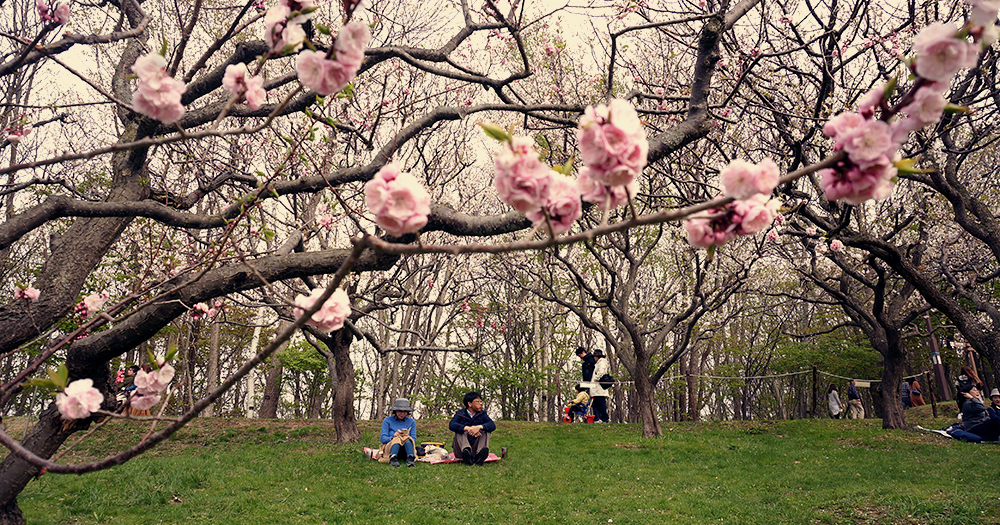Like most Singaporeans, I had a romantic notion of Japan. The picturesque sakura and snow-capped mountains on social media paint Japan as the perfect place to be.
Tired of materialism in Singapore and people using abbreviations (BTO, CPF, ROM) to mark milestones in life, a video about Japanese minimalists inspired me to live with less and not measure my life in possessions or quantifiers.
A part of me just wanted an entirely new environment to hit the restart button and reconsider my values.
When I was offered a job to implement the International Baccalaureate arts programme in a Hokkaido public school, I jumped on the opportunity.
I was given a one-bedroom apartment with some simple furniture; the starter pack that I needed to begin my new minimalist life.
Free of clutter and ugly junk that my parents hoarded over the years because they were “too good to throw”, I was off to a good start.
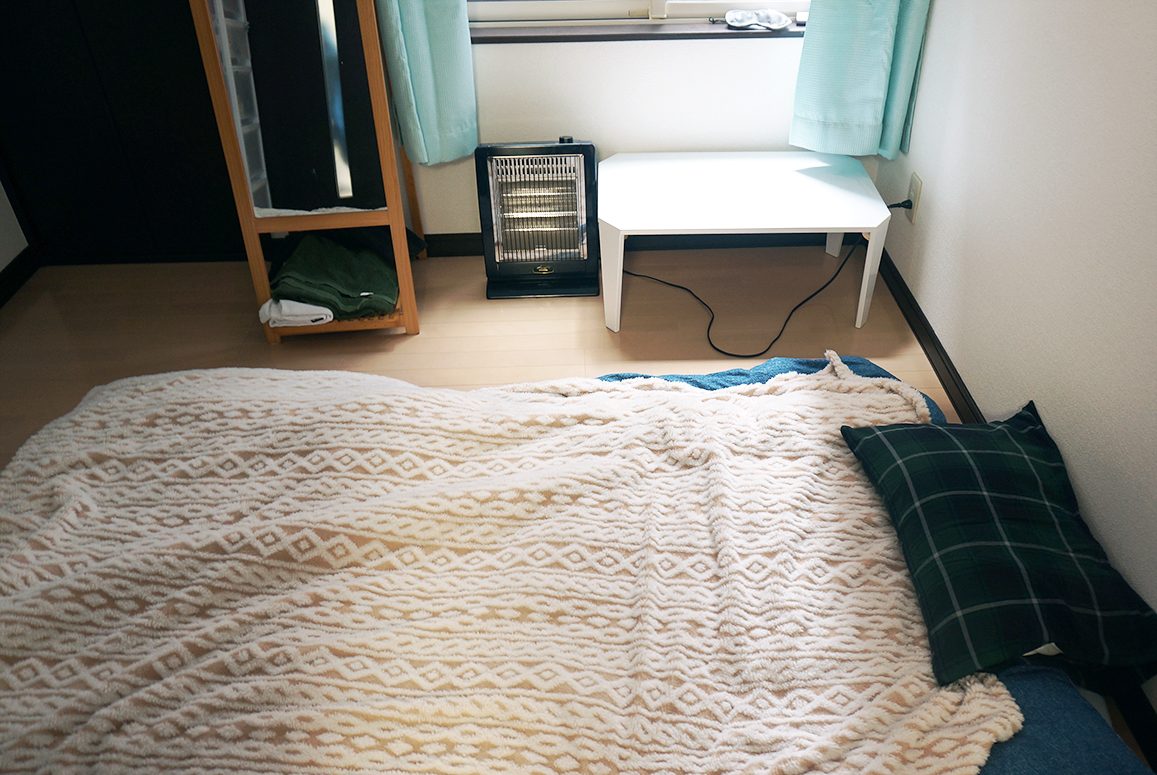 My room — inspired by minimalists in Japan, I aspired to keep my material possessions to the bare essentials.
My room — inspired by minimalists in Japan, I aspired to keep my material possessions to the bare essentials.
Expect cultural differences
Bureaucracy is inevitable in Japan.
One Japanese word I quickly picked up was shouganai, which means “cannot be helped”. I found that attitude to be quite prevalent amongst the Japanese, especially when it came to bureaucratic policies.
Whenever I questioned the usefulness of a particular administrative procedure, I was often given a shrug, coupled with “shouganai" and a smile, which I interpreted as “just suck it up.”
This multiplied my feelings of helplessness that I already faced with my poor grasp of the language, frustrating me often.
I felt that I was just going through the motions instead of imparting the joys of art — what I hoped to spend most of my time doing.
However, Japanese students struck me as teachable and innocent.
I remember one incident where I braced for embarrassing laughter because the teacher flashed a slide of an artwork with nudes.
Having taught secondary school students in Singapore, anything involving breasts tend to elicit unstoppable chuckling and I often spent a good chunk of lesson time asking students to settle down.
But in Hokkaido, the lesson went on in complete silence like it was no big deal.

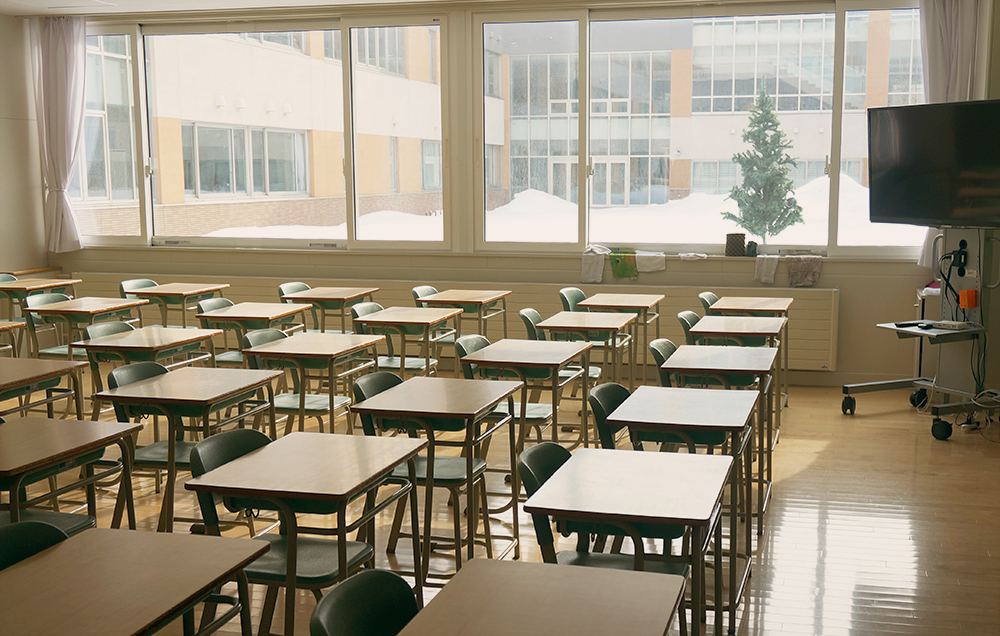 Some photos of the public school in Hokkaido.
Some photos of the public school in Hokkaido.
Lack of daylight can drastically affect your mood
I knew that Hokkaido experiences high snowfall. Having lived in New York for five years where the winter was harsher (even though snow was less), I felt prepared.
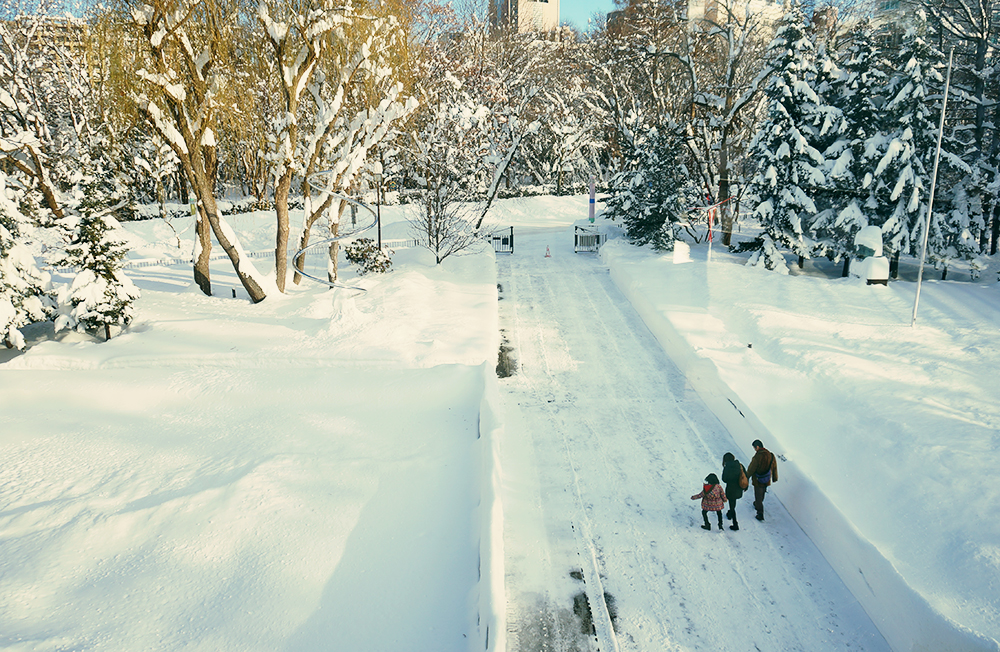 The snow would pile on the entire winter because temperatures would remain just below freezing.
The snow would pile on the entire winter because temperatures would remain just below freezing.
Yet, I overestimated my physical ability to cope, having grown slightly older. The most difficult part was the short daylight periods. The sun set at 4pm in winter, which meant that it was usually dark when I left work.
The five long months of winter felt very gloomy. I longed for Singapore’s beautiful sunshine, something we take for granted. I also missed the company of friends back home.
Now, I associate winter with cold and misery; kind of like being permanently drenched in rain, with nobody to talk to.
Be prepared for sickness
Once, I developed a slight fever in the night. I knew I would get better by just staying in my electric blanket all day, but due to bureaucratic reasons I had to report to the hospital.
Thankfully, the school bought insurance for me, which made the process rather smooth and fees affordable; something I did not think about.
Due to Singapore’s highly subsidised and accessible healthcare, many Singaporeans tend not to plan ahead for sickness while travelling or working abroad.
Unglamourous as it is, I discovered the hard way that we need to know we can be fragile, especially under drastically different weather conditions.
Buying the right insurance for times when we fall sick is crucial, and companies like Cigna Global can provide good coverage, even allowing you to customise according to your own needs.
Food can be a source of comfort
I was often snowed in due to the heavy snowfall, which made travelling far rather difficult.
It is something we never think about in Singapore because we easily hop on public transport that takes us all over the island.
One of the ways I kept myself occupied and happy was to try the food options near where I lived — various izakayas and ramen shops.
In Singapore, the yakitori is always done over gas fire, which misses the point. Yakitori has to be grilled over charcoal so the smoky flavour is encapsulated in the meat.
Down it with delicious beer on tap to beat the winter blues; which also gave me a belly.
The variety of ramen was also a treat for a noodle lover like me. Especially in the cold winter, the greasy, salty, warm broth was like a warm blanket for my freezing, lonely soul.
Nothing like food to comfort a Singaporean soul.
People were willing to befriend and support me despite our differences
I wouldn not have survived my year in Hokkaido if not for the small church community who accepted me, even though I was a foreigner.
I always looked forward to spending my Sundays in their tatami room.
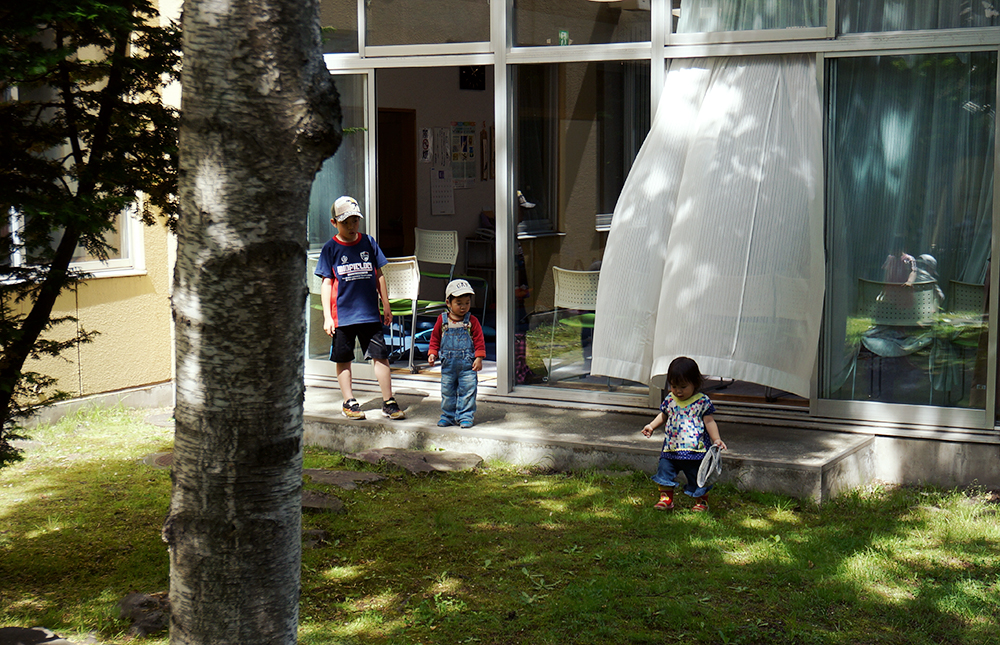 A typical Sunday during the Springtime, spent playing with children of friends.
A typical Sunday during the Springtime, spent playing with children of friends.
Parents in Singapore are quite guarded with their children but I felt very comfortable playing with the Japanese kids. We had a lot of fun in the snow and parks, when the weather got warmer.
When they found out I was leaving, they brought me for a day out to the aquarium. I will remember that day for years to come — it was my happiest day in Hokkaido.
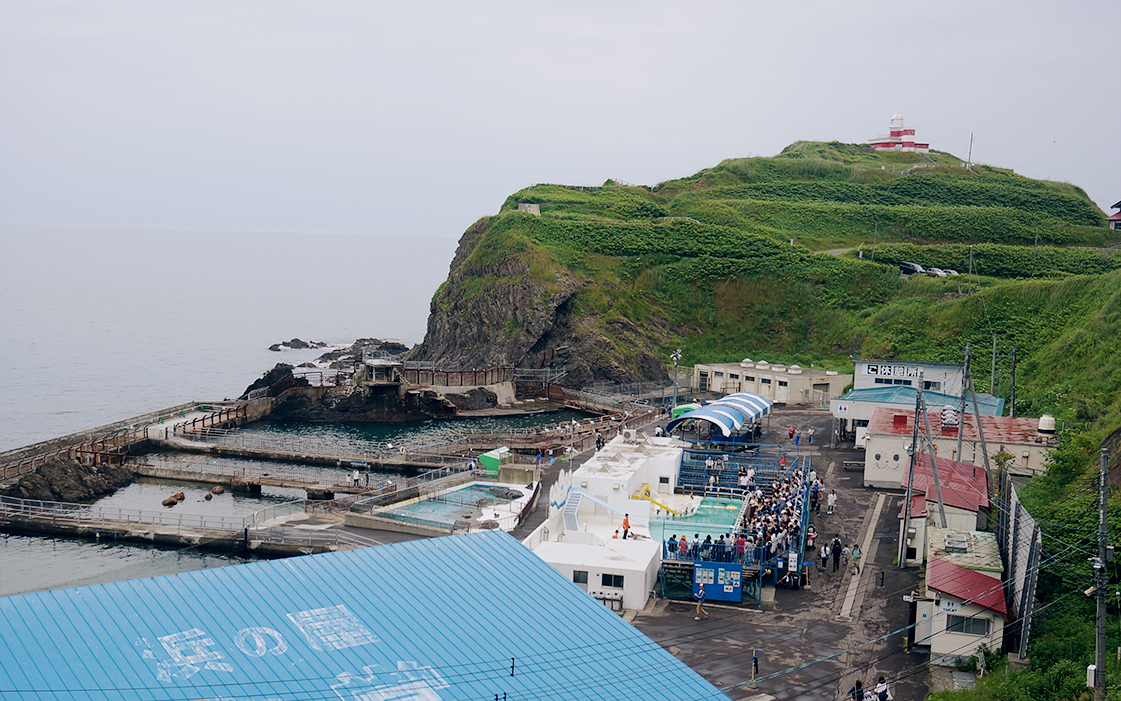 The Otaru aquarium, the biggest aquarium in Hokkaido.
The Otaru aquarium, the biggest aquarium in Hokkaido.
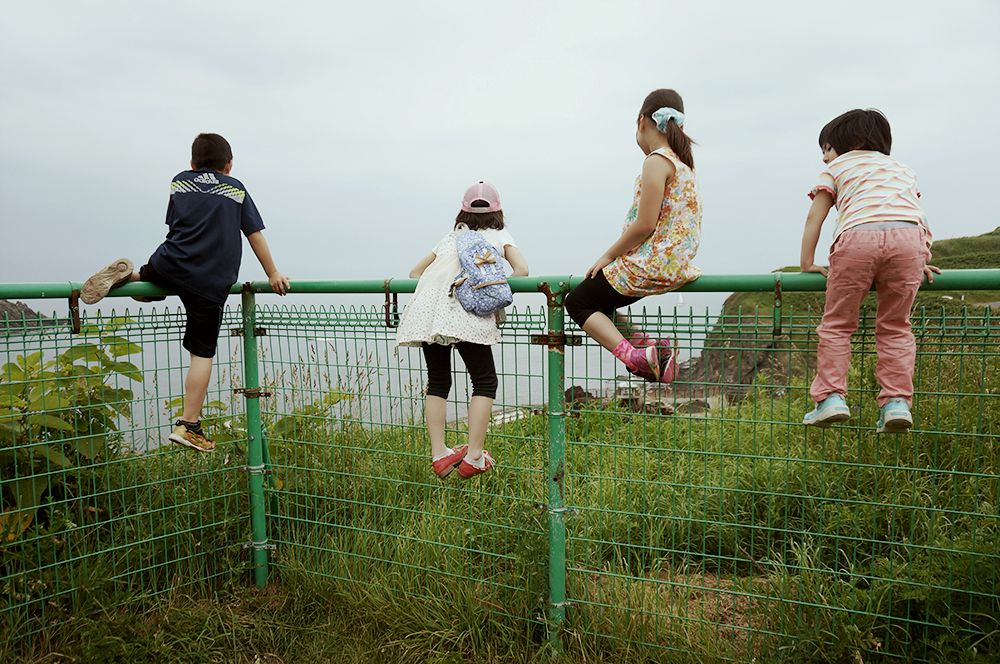 Our day out at the aquarium.
Our day out at the aquarium.
My boss also drove me to the airport on the day I was flying home, bringing me to the beach and some sightseeing spots before I left. It was sad to say goodbye to him.
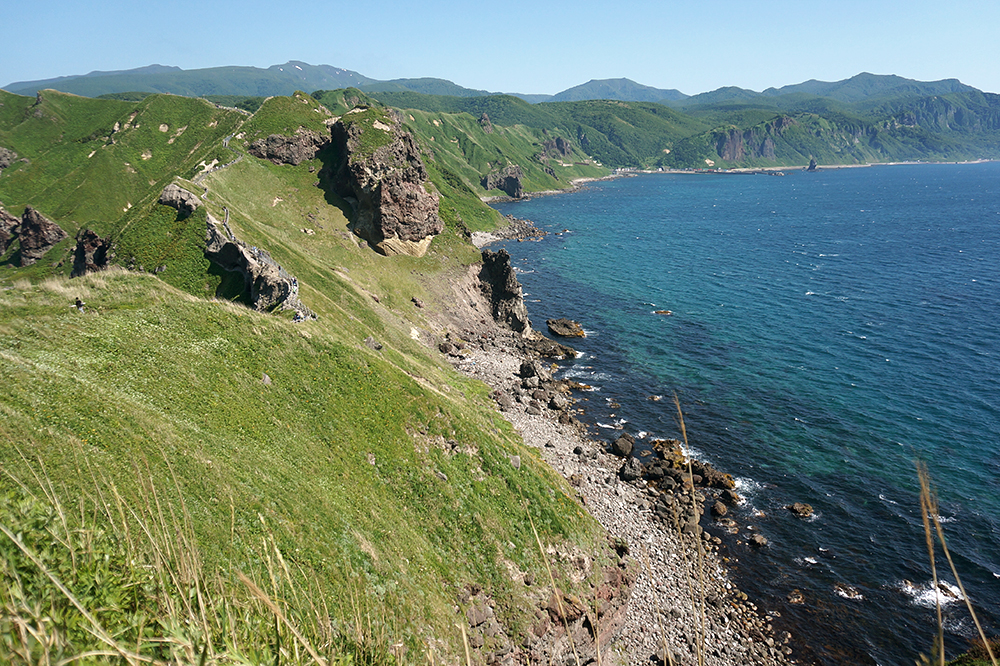 The beautiful ocean of Hokkaido.
The beautiful ocean of Hokkaido.
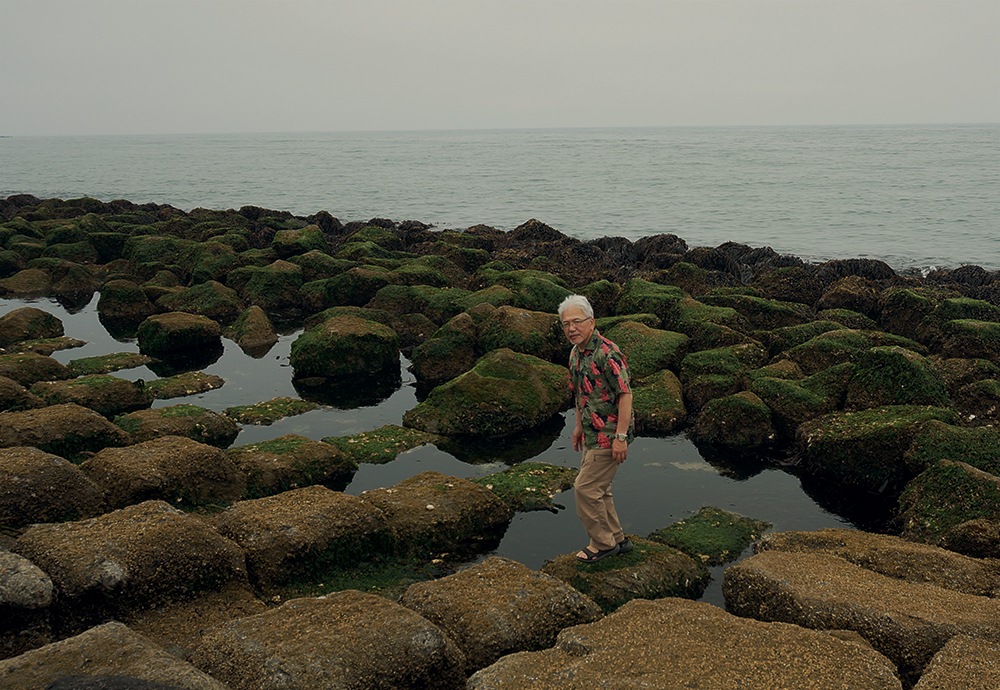 This is my boss Mr. Iino. I took this photo when he stopped us at a beach on the way to the airport to bid me farewell.
This is my boss Mr. Iino. I took this photo when he stopped us at a beach on the way to the airport to bid me farewell.
Sometimes we create a perception of a place due to social media or pop culture, but the harsh realities of life sets in wherever you are.
Oftentimes, there is a limit to the challenges which we can foresee, such as subtleties of cultural differences in work environments, social habits and even the efficiency of public transportation.
I had also overestimated my ability to cope with the long, cold winter.
Having the right insurance can help us to bolster the circumstances, especially in a foreign place where access to help can be more difficult due to unfamiliarity.
Though circumstances were trying, I am thankful for all who accepted and showed me love despite the language barrier and differing cultural values.
For now, I have a greater appreciation for Singapore’s tropical weather, the beautiful plants that line our street and simple pleasures like a cold cup of teh c peng (iced millk tea) on a hot summer’s day.
Which is pretty much everyday.
All photos by the author.
This post is sponsored by Cigna Global Insurance which helps prepare us for unexpected moments.
If you like what you read, follow us on Facebook, Instagram, Twitter and Telegram to get the latest updates.
